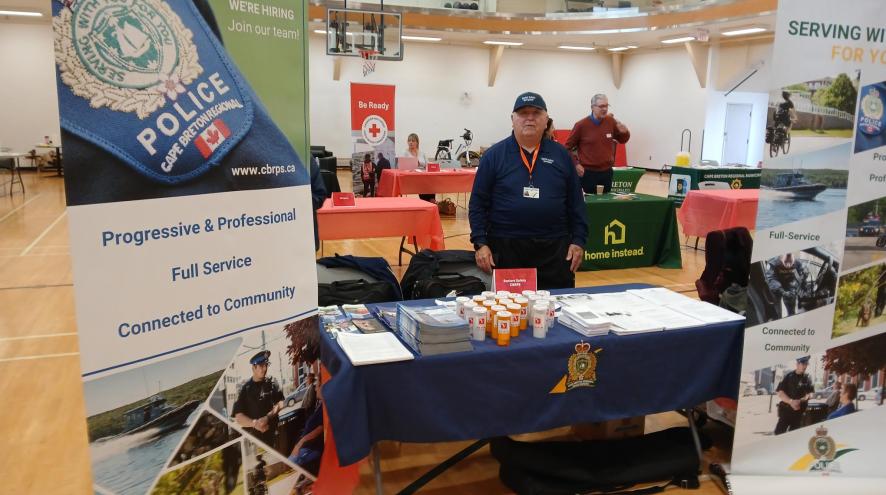Retired police officer helping to build safer, stronger communities for Cape Breton seniors
Senior safety navigator on duty

As Cape Breton’s Senior Safety Program continues to grow, it has welcomed Barry Gordon as a new senior safety navigator. In recognition of Senior Safety Week (Nov. 6-12), we sat down with Gordon to learn more about the program.
After years of service in policing, he has turned his lifelong dedication to community safety toward supporting seniors across the island.
“I worked for 50 years serving the community of CBRM,” Gordon said. “When this position came up, I thought it was another way to give back and to continue helping the community.”
The Senior Safety Program focuses on improving the quality of life of older adults across Cape Breton through education, outreach and connection. Gordon said the pandemic revealed how many seniors were isolated.
“We got a lot of calls from family members across the country who were worried about loved ones here,” he said. We realized there was a big void in communication and support. That’s what motivated me to step into this role.”
As senior safety navigator of the CBRM, Gordon has been busy building connections and programs that address the needs of seniors in the region.
“We started by meeting with the geriatrics unit at the regional hospital to understand what issues they see and how we can help deliver services to the community,” he said. “We’ve developed programs on topics like fall prevention, scam awareness, medication safety, storm readiness, domestic violence, and elder abuse. We also hand out information sheets with important phone numbers, like the senior abuse line, and talk about things like the importance of a power of attorney and will.”
Partnerships play a key role in the program’s success. Barry has teamed up with us at the Alzheimer Society and other local partners to offer educational sessions throughout the region. A major focus of the program is dementia awareness.
“There’s no way to tell when someone has dementia just by looking at them,” he explained. “That’s why public education is so important. People need to know how to recognize when someone might need help. The more public awareness there is, the more dementia friendly our community will be, which benefits everyone – not just people living with dementia.”
Gordon also emphasized the challenges for caregivers.
“It puts a lot of responsibility on loved ones, but I always tell them help is out there. You’re not alone. How would you feel if it was your mom or dad, your brother or sister? Wouldn’t you want someone to step in and help them get to a safe place? That’s what it’s all about: caring for our community and our neighbours.”
Isolation continues to be one of the biggest risks for seniors, especially those living with dementia. The Senior Safety Program is working to close that gap through outreach, education, and collaboration with local agencies.
“The further you go into rural areas, the fewer services and resources there are,” Gordon said. “It’s so important to get information out there. There’s a strong passion in these communities; people want to bring services in and help their neighbours."
For more information about senior safety initiatives or to connect with the program, call 211 (ext. 8), email [email protected], or by phone at 902-563-5151. If you need support on the dementia journey, call the Alzheimer Society at 1-800-611-6345.
